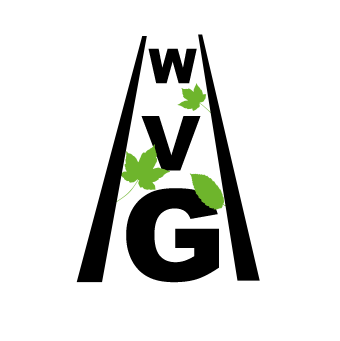
The Story So Far
Keith Bryant on The Floral Mile
The clearance works required to build the greenway left swathes of bare ground, which Wye Valley Greenway volunteer, Keith Bryant, thought offered the perfect opportunity for a wonderful wildflower display. Together with Chepstow-based wildflower enthusiast Marc Carlton, and with advice from Gloucestershire Wildlife Trust and the ecologists in the Forest of Dean District Council, they developed a flora conservation and restoration plan for the most damaged and neglected section between Sedbury Lane and the Tidenham Tunnel. This distinct section benefits from a variety of habitats which should support an unusually diverse range of wildflowers, flowering shrubs and trees for such a small area. And being exactly one mile long, the project just had to be called The Floral Mile.
So, having received permission and some initial funding from Greenways & Cycleroutes Ltd, Keith and a band of dedicated volunteers started work on turning the dream of creating a showcase of British wildflowers into a reality.
During Spring 2021, volunteers began clearing rubbish, from years of fly tipping, and removing invasive and non-native species from the embankments and verges of the old railway line. At the same time, the suffocating bramble, ivy and stinging nettle matting was controlled back, in a few areas, to give existing and re-introduced wildflowers and saplings space to grow.
Liz Brookes with volunteers Celia and Olly Hinton
Initial planting included the transplanting of native wildflower plants taken, legally with permission, from the privately owned meadows and woodlands of local residents. Tidenham Parish Council provided funding for seeds which have been sown in some sections. Additional funding, secured from a Boost for Biodiversity grant funded by Severn Trent’s Great Big Nature Boost, enabled a major planting session in Autumn 2021. At this point a clearer picture of the existing flora was visible and the best mix of additional species was determined. Gloucestershire-based Ecohab Wildflowers, founded by ecologist Liz Brookes, supplied wildflower plug plants grown from locally collected seeds and cuttings. Liz is also on the Flora Advisory Committee, along with Keith, Marc and Floral Mile volunteer and wildflower enthusiast, Celia Hinton.
When considering which other species to reintroduce, the Flora Advisory Committee are guided by a 1920 book (W.A.Shoolbred) which meticulously documented the wildflowers naturally found in the Chepstow area 100 years ago.
Careful seeding and planting of the area will provide a boost for biodiversity by increasing floral diversity and improve the habitat for pollinators. The corridor of the Wye Valley Greenway is important for several species of bats including a colony of lesser horseshoe bats that roost in the tunnel. Plants that encourage moths, and therefore bat foraging habitat, will be planted. Tree species and shrubs to improve dormouse habitat and connectivity are also proposed such as hazel and honeysuckle.
The main seeding and planting areas are between the open area by the former Tidenham Station and Tidenham Tunnel. On the southern section, planning permission limits the work that can be carried out, including the introduction of wildflowers. Fortunately, there are several varieties of existing flowering trees, wild honeysuckle, gorse and native wildflowers that we can propagate to increase the number of flowering species on the southern section. It is hoped that the Forest of Dean District Council will permit further enrichment of the habitat with local wildflowers when they see what has been achieved in the rest of The Floral Mile.
A wildlife pond was added in April 2024 funding was supplied by Deep. Planting around the pond will further diversify the plant species in the area. We have been able to plant Common Spotted or Marsh orchids and Marsh Marigolds in the pond margins. Sedge Grass is being encouraged to grow around the pond to provide a natural barrier, seed heads are being cropped to prevent spreading of the grasses into areas where they are not wanted.
When the area is more established, there are plans to install information boards and supply educational literature, as well as offering links through to online information, on the flora and fauna that can be seen on the route.
The Floral Mile is self supporting and, other than an initial donation, takes no money from Greenways and Cycleroutes. If you are interested in supporting the project as a volunteer or would like to make a donation to the planting fund, please contact: thefloralmile@hotmail.com.



